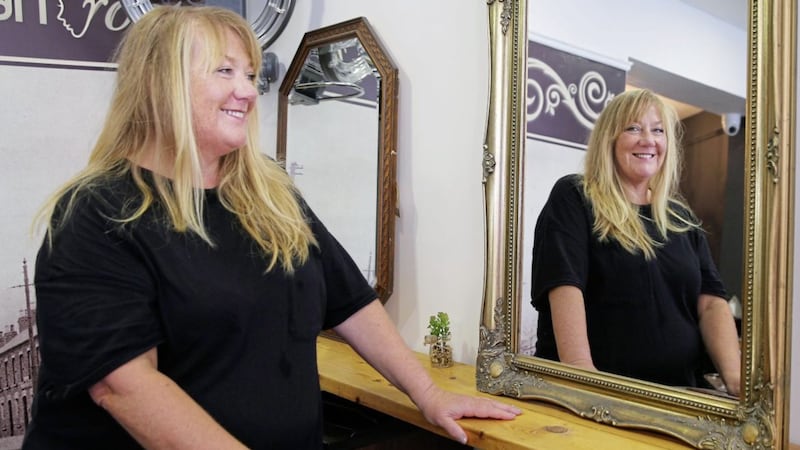WOMEN and men are often equally proud of their hair, particularly if they have been blessed with a full head of luscious locks. Apart from washing, conditioning and a regular occasional cut and style, most of us can expect to enjoy a healthy head of hair for decades without having to resort to any additional treatments.
Yet that's not the case for everyone, as some people, of all ages, can suffer with hair and scalp conditions that could, if left untreated, lead to permanent hair loss.
Often when problems occur, the first course of action is to consult a doctor or hairdresser. However, specialists known as trichologists are trained to give expert advice and treatment specifically regarding the hair and scalp.
Trichology is the science of the structure, function and diseases of the human hair and scalp. Co Down woman Paula McAnearney is one of six qualified trichologists in Northern Ireland.
While hair loss is typically why people seek a consultation with a trichologist, the former hairdresser from Banbridge says her expertise extends to many conditions.
"There are actually over 100 different types of alopecia, which results in hair loss, some of which can be permanent, some intermittent. Some hair issues can be due to medical or emotional problems. But there are also problems that would come under scaly or itchy scalp which could then develop into secondary conditions such as scarring or cirrhosis,” Paula says.
“This might also lead to secondary infections or a person may have very brittle, damaged hair from being over-processed during hairdressing and extra help may be required to regain the health of the hair and the scalp.
"If I can find out what the cause is, then I can treat it with a range of topical solutions or perhaps refer to the appropriate person such as a dermatologist, as I see my role, really, as a fast-track approach for the client to get them the right outcome.
"In the meantime, I can recommend some simple changes to their everyday routine which should help prevent and elevate the symptoms they are suffering from."
Paula believes that there is a lack of understanding in both general medicine and hairdressing, as well as among the wider public, of what trichology is and how a trichologist can help.
“The GP will have some training in this area but not to the extent of a trichologist. While not all conditions are treatable within a clinical environment, diagnosis and referral can be the key for the client and their prognosis," she says.
The mother of three grown-up daughters has spent her whole career working with hair, first as a hairdresser and then as a hairdressing college tutor at Belfast Met, where she taught for more than 20 years. She spent another three years studying to become a trichologist.
But when should someone seek out specialist help for a hair or scalp condition?
“What I would advise is to be vigilant about a recent change in your hair or scalp, something that is out of the norm for you,” Paula says.
“For instance, if someone goes to a GP and are recommended a shampoo which then doesn't solve the problem, that's the time I would say to seek out help from a trichologist. Something that is relatively simple to treat can escalate, depending on other factors that are going on at that time in the person’s life. It could signal a start of eczema or dermatitis or cirrhosis which could spread if it's not diagnosed and treated.
“Before a consultation, I would recommend having a range of blood tests done with the GP and perhaps their hormone levels if they are post-menopausal women.”
Paula knows that for some of the clients that she sees, the loss of hair is the most traumatic experience.
“It’s not just the loss of hair on people’s heads, it’s also the loss of eyebrows and eyelashes and my clients feel that with that comes a loss of identity. This leaves clients feeling very emotional and embarrassed about their condition," she says.
“My clients have told that because it is obvious that something is wrong with them, some people are reluctant to interact with them, wrongly supposing that they have cancer."
Paula is well aware that there are "emotional and social" factors in having an issue with your hair, adding: "But there is help out there.”
:: Paula McAnearney can be contacted at paulamcanearney@gmail.com or 0770 7453 663; for more information on trichology see trichologists.org.uk



